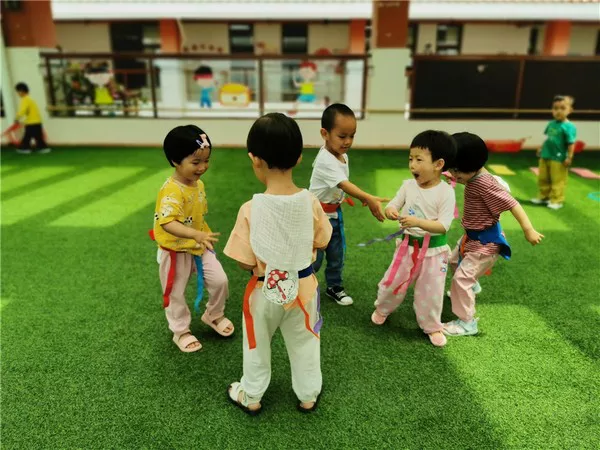Determining whether you love someone is a deeply personal and introspective process. Love is a complex and multifaceted emotion that can be challenging to decipher. It involves a deep affection, emotional connection, and a genuine desire for the well-being of another person. While the experience of love can vary from person to person, there are common signs and indicators that can help you understand whether you truly love someone. This article aims to provide guidance on how to know whether you love someone, highlighting key indicators and offering self-reflective strategies for gaining clarity in your emotions and relationship dynamics.
Understanding the Nature of Love
1.1 Love as an Emotion
Love is a powerful emotion that goes beyond superficial attraction. It involves a deep emotional bond, care, and concern for the well-being of another person. Love encompasses feelings of affection, attachment, and a genuine desire for their happiness.
1.2 Differentiating Love from Infatuation or Attachment
It’s important to differentiate love from infatuation or attachment. Infatuation often involves an intense attraction or obsession that may fade over time, while attachment can stem from familiarity or dependency. Love, on the other hand, is a deeper and more enduring emotional connection.
Signs of Love
2.1 Emotional Connection and Vulnerability
One of the key signs of love is a strong emotional connection with the person. You feel a deep sense of closeness, trust, and intimacy. Love involves being emotionally vulnerable and open with the person, sharing your thoughts, feelings, and fears.
2.2 Deep Affection and Care
When you love someone, you feel a deep affection and care for their well-being. Their happiness becomes a priority, and you genuinely want what’s best for them. You support and encourage their dreams, goals, and personal growth.
2.3 Desire for Their Presence and Happiness
A strong desire for the presence and happiness of the person is a sign of love. You enjoy spending time with them and feel a sense of completeness when they’re around. Their joy and well-being bring you genuine happiness.
2.4 Commitment and Long-Term Perspective
Love often involves a commitment and a long-term perspective. You envision a future with the person, considering them as a significant part of your life. You’re willing to invest time, effort, and energy into building and maintaining a meaningful relationship.
Self-Reflection and Introspection
3.1 Assess Your Feelings
Engage in self-reflection to assess your feelings towards the person. Take the time to understand the nature of your emotions. Reflect on whether you experience a deep affection, care, and a sense of emotional connection when you think about them.
3.2 Consider the Nature of Your Thoughts
Reflect on the nature of your thoughts when it comes to the person. Do they consistently occupy your mind, even when they’re not physically present? Are your thoughts filled with concern, admiration, and thoughts of their happiness? Consider the quality and frequency of your thoughts about them.
3.3 Examine Your Behavior
Evaluate your behavior and actions towards the person. Love often manifests in caring actions, support, and a willingness to go the extra mile for their well-being. Assess whether you consistently demonstrate kindness, empathy, and understanding in your interactions with them.
3.4 Reflect on Your Emotional State
Consider how being with the person makes you feel. Do you experience a sense of comfort, happiness, and emotional stability when you’re around them? Reflect on whether they bring out the best in you and contribute to your overall emotional well-being.
3.5 Evaluate the Strength of the Relationship
Assess the overall strength of your relationship. Reflect on the level of trust, open communication, and mutual respect between you and the person. Consider if you feel supported, understood, and valued in the relationship.
Observing Relationship Dynamics
4.1 Healthy Conflict Resolution
Love involves navigating conflicts and disagreements in a healthy and respectful manner. Evaluate how you and the person handle conflicts. Do you both engage in open communication, active listening, and a willingness to find compromises?
4.2 Mutual Growth and Support
Consider whether the relationship promotes personal growth and supports your individual aspirations. Assess whether you both encourage each other’s dreams, provide emotional support, and help each other become the best versions of yourselves.
4.3 Longevity and Commitment
Evaluate the longevity and commitment in the relationship. Consider whether you both have a shared understanding of the future and a willingness to work through challenges together. Reflect on whether the relationship has a solid foundation and potential for long-term growth.
Seeking External Perspective
5.1 Trusted Confidants
Seeking input from trusted friends, family, or a therapist can provide valuable external perspectives on your feelings and the dynamics of the relationship. Trusted individuals can offer insights and observations that may help you gain clarity and understanding.
5.2 Professional Guidance
If you’re struggling to determine your feelings, seeking guidance from a qualified therapist or relationship counselor can be beneficial. They can provide a safe space for exploration, help you navigate your emotions, and offer valuable insights into your romantic love.
Conclusion
Determining whether you love someone requires self-reflection, introspection, and an understanding of your emotions and relationship dynamics. Signs such as emotional connection, deep affection, care, desire for their presence and happiness, and a long-term perspective can indicate the presence of love. Engage in self-reflection, assess your feelings, thoughts, and behaviors, and evaluate the strength of the relationship. Seek external perspectives if needed. Remember that love is a complex and evolving emotion, and relationships require open communication, mutual respect, and continuous effort to flourish.


























